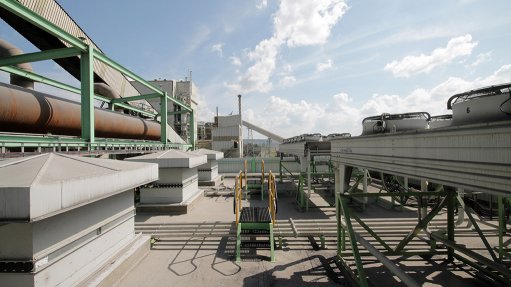
SA Calcium Carbide invested in a cogeneration facility earlier this year.
The chairperson of the Parliamentary Portfolio Committee on Energy has called for a fresh set of public hearings into the issue of cogeneration in South Africa after various frustrations and concerns were raised during hearings, which took place last week.
Sisa Njikelana has also recommended that the next set of hearings include the Department of Energy (DoE), Eskom, the National Energy Regulator of South Africa and the South African Local Government Association, and that it should explore the possibility of ensuring greater support for cogeneration across all spheres of government.
Cogeneration could include the generation of electricity from industrial waste heat and flue gases, plants that produce both heat and power and biomass sources, such as from waste produced in the sugar and forestry sectors.
Lawmakers were told that there was potential for South Africa to produce as much as 3 500 MW of electricity through the cogeneration of electricity from waste heat fuels.
The Industrial Development Corporation, which recently supported an 8 MW cogeneration investment by SA Calcium Carbide (SACC), in Newcastle, argued that higher power prices were creating an opportunity for industrial facilities to tap into cogeneration prospects that were hitherto not economically viable.
The State-owned bank estimated that South African mineral smelters and chemical plants had the potential to generate more than 2 000 MW of electricity from hot gases.
However, various presenters to the July Parliamentary hearings expressed frustration with the slow pace of uptake.
Particular concern was raised over the absence of incentives, as well as the fact that various obstacles preventing the development of such facilities had not yet been removed.
It was noted that the current version of the Integrated Resource Plan (IRP2010) did not explicitly recognise cogeneration and was vague on the treatment of new projects.
The DoE is currently redrafting the IRP2010 and consultations on the new generation roadmap should be held in the coming months.
Questions were also raised about whether South Africa’s regulatory framework was sufficiently supportive of cogeneration investment, particularly given that little progress had been made on the so-called cogeneration feed-in tariff (Cofit). As with the renewable feed-in tariff, however, the Cofit was likely to run foul of the Public Finance Management Act, which stipulates competitive bidding as part of any public procurement process.
However, in December last year, two Ministerial determinations were published, opening the way for bidding programmes for both baseload projects and the so-called Medium-Term Risk Mitigation (MTRM) programme, through which the DoE aimed to procure 800 MW of near-term cogeneration capacity.
In June, the department issued a request for registration and information for the baseload and MTRM programmes, which closed on July 12, and a bidding programme could be launched in the coming months.
Some presenters also suggested that the Independent System and Market Operator Bill needed to be passed urgently to level the playing field for private electricity investors, while the rules on wheeling power also had to be addressed.
Njikelana called for an elaborate national plan for cogeneration, but did not offer a timeframe for the next set of hearings.